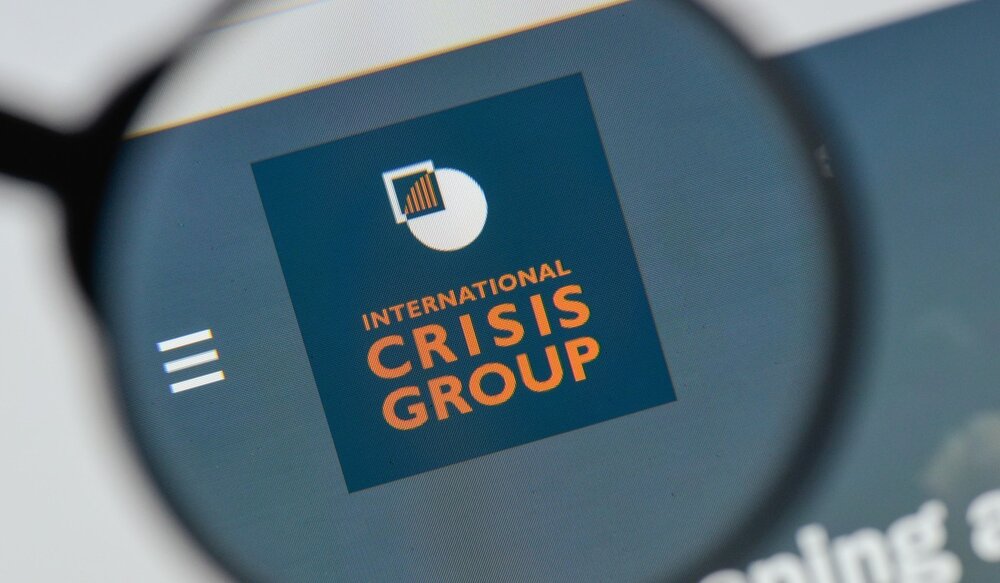Crisis Group recommends how to revive the JCPOA

TEHRAN- The International Crisis Group (ICG), also known as the Crisis Group, is a transnational think tank run by policymakers and academics. It conducts research and analysis on global crises. The ICG has described itself as "working to prevent wars and shape policies that will build a more peaceful world."
With regional programs covering all strategic regions including West Asia, the ICG has been characterized by right-wing organizations and publications as "liberal” and "a left-leaning advocacy organization.”
The Brussels-based think tank has several advocacy offices across the globe. Other legally registered offices are based in Bogota, Dakar, Istanbul, and Nairobi.
As of June 2018, the Crisis Group has been present in Abu Dhabi, Abuja, Bangkok, Beirut, Caracas, Gaza, Guatemala City, Hong Kong, Beit-ol-Moqaddas (Jerusalem), Johannesburg, Juba, Kabul, Kiev, Mexico City, Mogadishu, Rabat, Tbilisi, Toronto, Tunis, and Yangon.
Robert Malley, the current U.S. envoy for Iran, who served at the National Security Council under Barack Obama’s administration, became president and CEO of the ICG in January 2018.
The think tank has a special page titled “Iran”, which publishes several reports, briefings, and commentaries on Iran.
Ali Vaez, one of the most prominent figures in the ICG and director of the Iran Project and a senior adviser to the president, actively writes on Iran and regional issues. According to ICG’s website “He led Crisis Group’s efforts in helping to bridge the gaps between Iran and the P5+1 that led to the landmark 2015 nuclear deal.”
To reach a more precise analysis of the plausible future negotiations between Iran and other parties, it would be more realistic to conduct a content analysis of the published materials by think tanks especially on West Asia, and obviously, the International Crisis Group is no exception.
ICG’s latest annual reports on JCPOA
The think tanks published a report on January 15 titled “The Iran Nuclear Deal at Five: A Revival?” recommending that Biden’s administration and Tehran should act swiftly to revive the nuclear agreement on its existing terms.
The 38-page report argues that setting a staggered timetable to bring both sides back into full compliance is likely the best path toward nuclear and regional de-escalation and can open the possibility of broader talks with the next Iranian president.
Experts believe such an approach can prove effective in several aspects due to its likely potential to restore transatlantic cooperation, facilitate the financial dividends the JCPOA was meant to deliver to the Iranian civilians as well as providing a foundation for future negotiations on matters other than Iran’s nuclear portfolio.
Accusing the Islamic Republic of “a series of worrying violations” of the nuclear deal, the International Crisis Group believes JCPOA critics’ insistence on the necessity of coercing Iran to reach a better deal was fruitless. They write: “The ‘maximum pressure’ era has produced the worst of all worlds: All they have achieved is hollowing out the existing one, economic stagnation for Iran, mounting international concern about its nuclear program, and simmering regional tensions.”
ICG: Why is nuclear deal still alive?
In fact, for more than half of its lifespan, the JCPOA has struggled to survive not only due to Americans’ violation of their commitments, but with their relentless efforts to completely kill the agreement. The ICG argues that the survival of the deal highlights “the strength of its core bargain: rolling back Iran’s nuclear activity for economic respite from sanctions emplaced in response to those very activities.”
Insisting not only on the critical necessity of restoring that perception, the think tank also believes in its viability with the arrival of Joe Biden at the White House. They underline: “But it will require both Washington and Tehran, along with the deal’s other participants, to move quickly and in good faith toward reviving the agreement.”
ICG’s recommendations to revive the JCPOA
In parallel with think tanks signaling similar attitude towards Biden’s inclination to reenter the nuclear deal, the ICG offers some recommendations to revive the JCPOA. However, the experts emphasize that decades-long hostility between Iran and the U.S. is too deeply rooted to be terminated through the JCPOA.
Neither the deal can function as a silver bullet, nor was it intended to resolve every issue which have put Tehran’s relations with the West and its neighbors under the strain.
The suggestions put forward in the report are based on a fixed premise that Iran’s nuclear program is intended for military purposes. However, it makes no mention of the West’s noncompliance with their JCPOA commitments. The ICG views Iran’s remedial nuclear activities that are based on paragraph 36 of the JCPOA and formally declared, as “breaches of the nuclear deal”. It says: “Tehran will need to dismantle excess centrifuges and blend down or ship out the enriched uranium stockpiles that go beyond what the deal allows.”
Against this backdrop, the think tank proposes some recommendations to revive the JCPOA. This is the list of their suggestions:
- “Developing a timetable, in consultation with the JCPOA’s Joint Commission and International Atomic Energy Agency (IAEA), to completely reverse its breaches of the nuclear deal within two to three months.”
- Establishing a regional dialogue supported by the U.S., UN, and a core group of European states to terminate the lethal, bloody war in Yemen.
- Approving a $5 billion International Monetary Fund loan for Iran to counter the COVID-19 pandemic by the Oval Office. This, along with the Biden administration’s commitment to a reversal of Trump’s exit from the JCPOA, means “ensuring that humanitarian exemptions to U.S. sanctions are honored.”
- The U.S declares readiness to rescind Trump’s era sanctions in accordance with IAEA confirmation of Iran’s nuclear activity in full compliance with its JCPOA obligations. These steps could be adjusted to start or take place at different times in parallel.
Leave a Comment